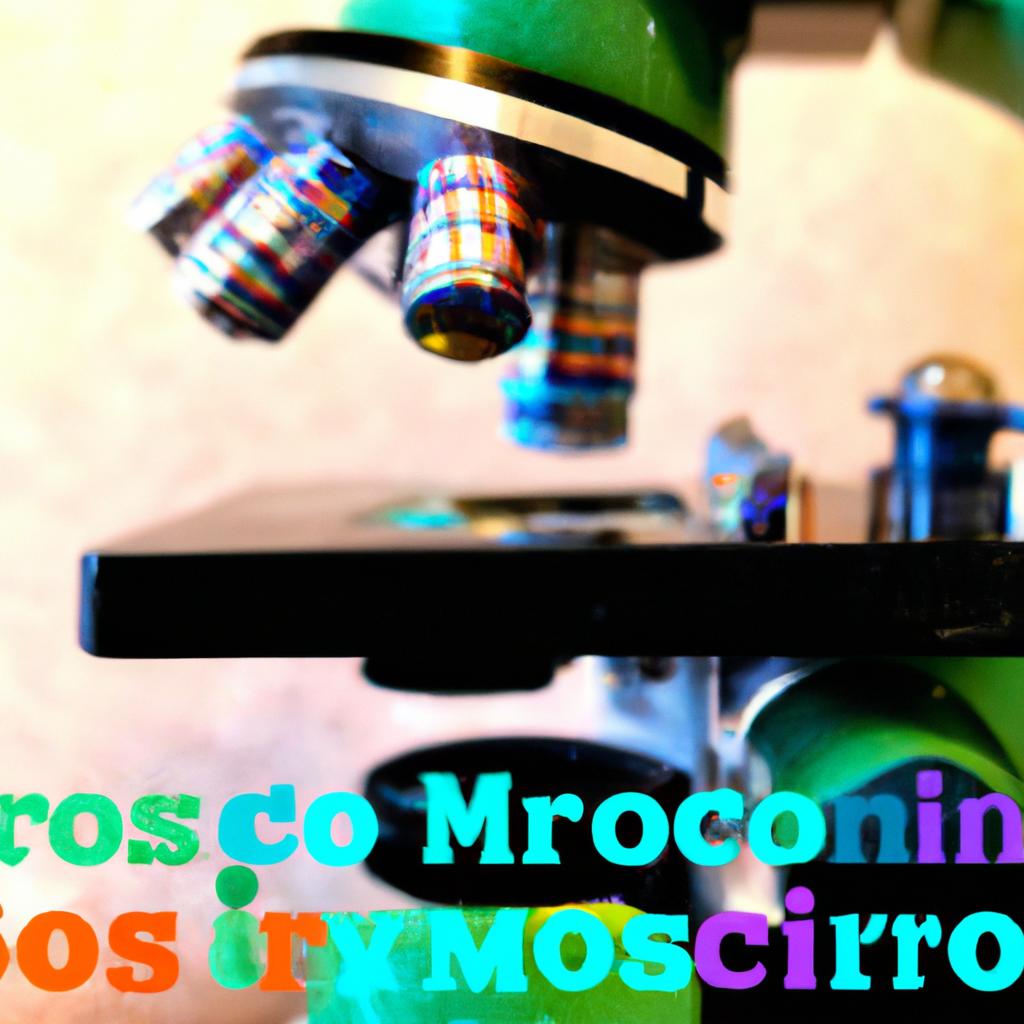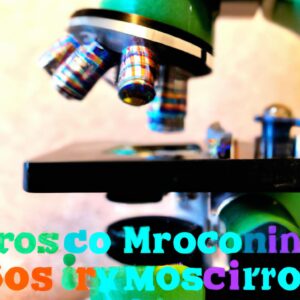Introduction to Microbiome Research
Microbiome research is the exploration and study of an entire ecosystem located within and outside of living organisms. This ecosystem consists of bacteria, viruses, fungi, and other microscopic creatures that are essential for the proper functioning of the body. The microbiome is considered to be a critical component of human health, and its role in maintaining good overall wellbeing has been increasingly acknowledged in recent years.
Recently, it has become apparent just how significant these microscopic creatures are. It is now known that the microbiome plays an integral role in immunological, metabolic, and physiological processes in humans. Thus, understanding the microbiome is key to improving our understanding of human health.
Importantly, microbiome research seeks to understand the relationship between microbial communities and overall health. It does this by exploring potential connections between changes in the microbiome and a wide range of health conditions, diseases, and other medical issues.
Microbiome research is of utmost importance for healthcare as it can lead to better diagnostic techniques, targeted treatments, and prevention strategies for a wide variety of medical conditions and diseases.
How Does the Microbiome Affect Health?
The microbiome is a complex and constantly changing collection of microorganisms, including bacteria, archaea, viruses and fungi, that live on and within our bodies. It is becoming increasingly clear that the microbial communities living inside us are an integral part of our health and well-being. In fact, research has linked the microbiome to many aspects of health, including brain development, metabolism, immunity, and even behavior.
The microbiome has been implicated in a variety of health conditions, from chronic inflammation to autoimmune diseases, obesity, allergies, type 2 diabetes, Parkinson’s disease, Alzheimer’s disease, and depression. Some studies have even suggested that the microbiome could be used as an indicator for overall health and disease risk.
For example, one study found that the presence of certain bacterial species in the gut was associated with a lower risk of developing colorectal cancer. Another study concluded that people with depression had reduced levels of Bifidobacterium, while people with anxiety had increased levels of Bacteroides.
These findings illustrate how the microbiome plays a role in health and well-being. It is therefore essential to gain a better understanding of the microbiome and its effects on human health so that medical interventions can be tailored to each individual and their unique microbial profile.
Current approaches to Microbiome research
Microbiome research is a relatively new field of science and the techniques used by scientists are constantly evolving. In order to gain a better understanding of microbial communities, scientists use two methods: culture-based analysis and genomic analysis.
Culture-based Analysis
The culture-based approach involves growing bacterial species in petri dishes and identifying each species by its physical characteristics. This technique is useful in understanding the diversity of the microbiome, but it has its limitations as it is unable to detect species that cannot be grown in cultures.
Genomic Analysis
Genomic analysis is an alternative approach to studying the microbiome. This method relies on sequencing the DNA of microbial species in order to identify which species are present. This is a more comprehensive approach than the culture-based technique as it is capable of detecting both culturable and non-culturable species.
Concluding Remarks
Culture-based analysis and genomic analysis are the two main methods currently used by researchers when studying the microbiome. Both approaches have their advantages and disadvantages, but they can both provide important information about the microbial community.
The Future of Microbiome Research
Microbiome research has become increasingly important within healthcare due to the growing understanding of the role of microbial communities in influencing human health. This research has the potential to transform current therapies for a wide range of medical conditions. In the future, microbial research could be used to diagnose and treat diseases, as well as to design personalized treatments and therapies.
In the years ahead, microbiome research could be used to develop targeted treatments and therapies for a wide range of conditions. For example, research into the gut microbiome could identify specific microbes that could be used to treat inflammatory bowel diseases. Additionally, skin microbiomes could be researched to better understand how changes in the microbial community can lead to skin conditions such as acne and eczema. The use of probiotics as a medical intervention could also be further explored.
Other areas of research could explore the relationship between the microbiome and disease susceptibility or abnormal physiological processes. Additionally, research into the microbiome of plants and animals could help us better understand how these microbial communities interact with their hosts and how changes to them can influence health outcomes.
Finally, it is important to recognize the role of respecting microbial balance as it pertains to health. The delicate balance between microbial communities is essential for maintaining optimal wellbeing and new treatments should consider this.
Gut Microbiome Research
The gut microbiome is an incredibly complex entity, with its makeup differing greatly between individuals. By studying the bacteria present in the gut, scientist are able to gain valuable insight into our health and well-being. It is believed that a balanced gut microbiome is essential for optimal health, and any disruption of this balance can result in numerous health issues.
It is also possible to positively affect the composition of the gut microbiome through medical interventions such as probiotics. Probiotics are live microorganisms that can help to increase the levels of good bacteria in the gut. They have been shown to be effective in reducing inflammation, improving digestion, and boosting immunity.
In addition to probiotics, there are many other medically available treatments to manipulate the gut microbiome. Doctors may also prescribe antibiotics for gastrointestinal infections or prebiotics, which are non-living substances that promote the growth of beneficial bacteria in the intestines.
It is clear that research into the gut microbiome is paramount to understanding the human body and can lead to the development of treatments that can significantly improve our quality of life.
Skin Microbiome Research
The skin microbiome has been the subject of much research due to its complex nature, and its implications for human health. The skin microbiome includes the microorganisms that inhabit our skin and have a direct effect on our body’s immune system and overall health.
It is known that the composition of the skin microbiome can vary between individuals, making it difficult to identify factors which will determine the exact makeup of the individual’s skin microbiome. The skin microbiome is also affected by environmental conditions such as humidity, temperature, and light. As a result, researchers believe that variations in the skin microbiome are associated with different skin conditions.
Recent breakthroughs in skin microbiome research have allowed scientists to analyze the bacterial populations present on the skin to identify potential causes behind skin conditions such as acne, eczema, and psoriasis. A better understanding of the skin microbiome could lead to treatments tailored to particular skin types. It could also provide insight into the relationship between the body’s natural flora and disease-causing pathogens.
Additionally, skin microbiome research has provided new approaches to fighting infections. Researchers have developed topically-applied creams and lotions designed to promote the growth of beneficial bacteria on the skin while suppressing the presence of harmful microbes. This approach can be used to reduce the risk of infections caused by the naturally-occurring microbial communities on the skin.
Overall, the skin microbiome plays an essential role in our body’s health, and further research into this field could open up new avenues for treatments and disease prevention.
Oral Microbiome Research
The oral microbiome is an important factor in human health, and is often underestimated when it comes to overall well being. Researchers have identified a rich and varied microbial community within our mouths, made up of hundreds of different bacterial species.
These bacteria are affected by numerous aspects of our lives such as diet, oral hygiene, and medications used to treat or prevent oral conditions. Changes to the mountain of microbes can have a profound effect on oral health, leading to the development of conditions such as gum disease or cavities.
Researchers hope to gain a better understanding of how these microbial communities interact and how their composition can be altered to help restore balance and good oral health. One way this could be achieved is through the use of probiotics, which contain beneficial bacteria or yeasts that can interact with the existing microbiome in the mouth and improve general oral health.
It is important for individuals to maintain good oral hygiene practice, as this can prevent changes to the oral microbiome, and reduce the risk of developing oral diseases. Understanding the effect the oral microbiome has on health and its potential for treatment is a key research area for future progress.
The Role of the Vaginal Microbiome
The vaginal microbiome is essential for a woman’s overall health. It consists of bacteria, fungi, and other microbial organisms that live in and on the vagina. A healthy vagina contains a diverse variety of different types of bacteria, which act as a barrier and prevent the growth of more dangerous bacteria. An imbalance of these microorganisms can lead to infection and other health complications.
Having the right balance of bacteria in the vagina also helps to maintain the pH balance, which is important for reproductive health and regular menstrual cycles. When harmful bacteria begins to overgrow, it can lead to conditions such as bacterial vaginosis, yeast infections, and trichomoniasis.
Research suggests that, in addition to protecting and supporting women’s health, the vaginal microbiome may also play a role in preventing certain sexually transmitted infections, as well as helping to protect against preterm birth and miscarriage.
It is important to maintain the balance of bacteria in the vagina by keeping the area clean, wearing loose fitting clothing, avoiding perfumed soaps, and using a gentle soap when washing. Additionally, probiotics can be taken to help support a healthy vaginal microbiome.
Plant Microbiomes
The microbiome is an incredibly important part of the plant’s health. It’s made up of microscopic organisms, such as bacteria and fungi, which live in and around the plant. These microbiomes play a vital role in managing plant growth, disease resistance, and food security.
For example, root-associated bacteria and fungi can help the plant to absorb nutrients from the soil. They also produce substances that protect the plant from diseases, insects, and environmental stress. This is why researchers are now looking for ways to boost the plant microbiome to improve crop yields.
On the other hand, some microbiomes can cause diseases, leading to stunted growth. To prevent this, scientists are looking into ways to select beneficial microorganisms that will promote plant growth. They are also exploring ways to modify the microbiome to make it more resistant to diseases and pests.
Overall, maintaining a healthy plant microbiome is essential to ensure proper growth and secure our food supply. This is why scientists are investing so much energy and resources into understanding the microbiome and its impact on the health of plants.
The Role of Animal Microbiomes
Animal microbiomes are incredibly important to the overall health of animals. It’s been theorized that they help with digestion, immunity, metabolism, nutrition, and development. Some studies have even suggested that the microbiome might be used to diagnose and treat various diseases in animals.
But what exactly is the microbiome? The microbiome is a complex community of bacteria, fungi, viruses, and other microorganisms that live on or inside of us. It’s been said that the microbiome contributes to an animal’s well-being and plays an important role in its overall health.
Researchers are still learning about the relationship between animal microbiomes and health. But it’s clear that animals rely on their microbiome for many physiological functions. For instance, studies have suggested that the microbiome helps break down food, regulates hormones, boosts immunity, and helps to prevent disease.
It’s also been suggested that certain species of bacteria influence the behavior of animals. For example, some microbes are able to produce hormones that can influence animals’ behavior, including feelings of happiness, hunger, and aggression.
The importance of respecting animal microbiomes and maintaining a balance of these complex communities of organisms is becoming increasingly recognized. For instance, animal nutritionists have developed special diets meant to optimize the health of the microbiome. This includes providing a variety of healthy foods and avoiding processed foods that may disrupt the microbial balance.
In conclusion, animal microbiomes play an important role in the health of their hosts. Maintaining a balanced microbiome can help keep an animal healthy, while disrupting the microbial balance can lead to various illnesses and diseases. Thus, it is important for us to respect the microbiome of animals, and to take steps to ensure its optimal functioning.
The Importance of Respecting Microbiomes
Microbiomes play an important role in our health and wellbeing. By respecting microbial balance, we can ensure that our bodies are functioning optimally. The microbiome is made up of a variety of microorganisms living on and in our bodies, including bacteria, fungi, and viruses. These microorganisms help promote a healthy immune system and help us metabolize food, aiding in digestion.
An imbalance in the microbiome, known as dysbiosis, occurs when harmful bacteria or other microorganisms outnumber those that are beneficial. Dysbiosis can lead to health issues such as allergies, asthma, and autoimmune diseases. In addition, an imbalance in the microbiome has been linked to digestive issues such as bloating, diarrhea, and constipation.
In order to keep our microbiomes balanced, we must pay attention to what we put into our bodies and consider the potential risks of overuse of antibiotics and antibacterial soaps or other products. We should also make sure to eat a balanced diet that is rich in fiber, which helps feed the beneficial bacteria in the microbiome. And, it’s important that we get enough sleep and manage stress levels.
Taking care of our microbiome is one of the most important things we can do to maintain our overall health and wellbeing. By respecting the delicate balance of microorganisms in our body, we can ensure optimal health and ward off potential illnesses.
Summary and Conclusion
Microbiome research has revolutionized the way we approach medical care and better understand the relationship between our microbial communities and their affect on health outcomes. By studying the microbiome, researchers can gain insight into conditions such as gut or skin disorders, as well as the potential benefits that may result from manipulating the microbial balance in the human body. Currently, scientists are looking to discover further links between the microbiome and health, as well as develop new therapies aimed at restoring microbial balance.
At this point in time, the future of microbiome research is promising. With the advancement of new technologies, scientists have the potential to explore the microbiome on a deeper level and further our understanding of its complexity. As more data is collected, the research possibilities are almost endless and could potentially open up new avenues for treatment of various diseases and conditions.
Ultimately, the role of microbiome research in health is incredibly important. By taking into consideration the importance of microbial balance, we can continue to improve current healthcare practices and make strides in protecting the health of both individuals and the environment.
comments: 0











